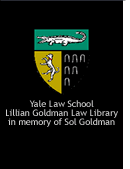
 |
 |
- produced by Jude Geiger Annotated Bibliography Alexander, Peter. 2000. Workers, War, and the Origins of Apartheid: Labour and Politics in South Africa 1939-1948. Athens, OH: Ohio University Press. The origins of Apartheid are mixed with the economic structure of South Africa in the Twentieth Century. This book addresses the economic connections of Apartheid and racism within labor organizations.
Deegan, Heather. 2001. The Politics of the New South Africa. New York: Longman. This book explains the changes that occurred after the end of Apartheid and the installation of the Government of National Unity. It also explains South Africa’s first elections and the changes that have occurred since the fall of the National Party.
Dunton, Chris & Palmeberg, Mai. 1996. Human Rights and Homosexuality in Southern Africa. Uppsala, Sweden: Nordiska Afrikainstitutet. The authors of this book provide a practical guide to issues facing lesbians and gay men in Southern Africa. The work includes a detailed explanation of the legal regime in South Africa.
Elphick, Richard & Davenport, Rodney. (1997). Christianity in South Africa: A Political, Social, and Cultural History. Berkeley: University of California Press. The editors of this volume dedicate their attention to the history of Christianity in South Africa and how it has been used to both support and oppose racial segregation and apartheid.
Gevisser, Mark & Cameron, Edwin. (1994). Defiant Desire: Gay and Lesbian Lives in South Africa. Johannesburg: Raven Press. This work provides a history of gay men and lesbian in South Africa. The book explore the social and legal repression of members of the gay community and the intersection of race with sexuality.
Issacs, Gordon & McKendrick, Brian. 1992. Male Homosexuality in South Africa: Indentity, Formation, Culture and Crisis. Cape Town: Oxford University Press. The history of homosexuality in South Africa is provided in this book, along with an analysis of how the legal regime impact lesbian and gay lives.
Judd, Dennis & Surridge, Keith. 2002. The Boer War. London: John Murray. Anyone wanting to understand apartheid should consider the Boer War. This book explains the racial politics of the English colonists of South Africa and how their actions were used to construct an Afrikaner identity. The Afrikaner identity solidified in the Boer War would later be used to justify apartheid.
Keegan, Timothy. 1997. Colonial South Africa and the Origins of the Racial Order. Cape Town: David Phillip. When examining the history of South Africa, one may forget that many colonial empires demonstrated racist policies that were similar to apartheid. Keegan explains how the colonial history of South Africa impacted its later policies of racial intolerance.
Lapping, Brian. 1986. Apartheid: A History. London: Grafton Books. This book provides a detailed account of the history of apartheid from an anti-apartheid perspective. It provides a solid foundation for understanding how apartheid was introduced to the nation and its connection with colonialism and the Afrikaner independence movement.
Prozesky, Mark & De Gurchy, John. (1995). Living Faiths in South Africa. New York: St. Martin’s Press. South Africa is a nation of diverse religions. This edited volume explores the many religions of South Africa ranging from traditional African religions to the Christianity of the Afrikaner and English settlers and later converts. Articles Christiansen, Eric C. Note: Ending the Apartheid of the Closet: Sexual Orientation in the South African Constitutional Process, 32 N.Y.U. J. Int’l L. & Pol. 997 (2000). This article explains the construction of the South African constitution and its inclusion of sexual orientation as a protected class. It also provides a brief history of the suppression of lesbians and gay men under apartheid.
Garkawe, Sam. The South African Truth and Reconciliation Commission: A Suitable Model to Enhance the Role and Rights of the Victims of Gross Human Rights Violations? 27 Melbourne U. L. R. 334 (2004). The Truth and Reconciliation Commission is analyzed for its effectiveness. While the TRC has been criticized for failing to respond to victims, this may be due to the great expectations placed on the organization.
Lansing, Paul & King, Julie C. South Africa’s Truth and Reconciliation Commission: The Conflict Between Individual Justice and National Healing in the Post Apartheid Age. 15 Ariz. J. Int’l & Comp. Law 753 (1998). The Truth and Reconciliation hearings were unique because at times they required individuals to sacrifice their own demands for justice so that national unity and healing could be achieved. The author concludes that this process was better than one focused on punishing perpetrators because it allowed the nation to look forward rather than backward.
Sarkin, Jeremy,The Drafting of South Africa’s Final Constitution from a Human Rights Perspective, 47 Am. J. Comp. L. 67, 79-81 (1999). The values of the Truth and Reconciliation Commission impacted South Africa’s constitution. The South African constitution is analyzed based on its protection of the South African people from government oppression. The author reveals that judicial interpretation has a significant impact on the meaning of the Constitution.
Wing, Adrien Katherine.Symposium: The Fifth Anniversary of the South African Constitution: A Role Model of Sexual Orientation, 26 Vt. L. Rev. 821, 824-825 (2002). The African National Congress was unsure of its stance on lesbian and gay rights until the 1980’s. The internal divisions within the ANC during the drafting of the South African Constitution and later court interpretations of the document are explained.
Additional Materials Relevant to the Media Under Apartheid Ansell, Gwen. 2004. Soweto Blues: Jazz, Popular Music and Politics in South Africa. London: Contiuum International Publishing.
Musicians explain how apartheid impacted their lives and the development of their music. Acts of terrorism by the apartheid government that occurred during concerts and other musical experiences are explored.
Coombes, Annie E. 2003. History After Apartheid: Visual Culture and Public Memory in a Democratic South Africa. Durham, N.C.: Duke University Press.
During the time of the TRC, art in South Africa represented both the past history of apartheid and the dramatic transitions that were occurring in that nation. This work examines how the tension was reconciled in public monuments and works of fine art.
Davis, Geoffrey V. & Fuchs, Anne. 1996. Theatre and Change in South Africa. Amsterdam: Harwood Academic Publishers.
This collection addresses how South African theatre can develop after the end of apartheid. The work examines the meaning of protest theatre after the end of white domination and control.
Davis, Peter. 1996. In Darkest Hollywood: Exploring the Jungles of Cinema’s South Africa. Athens, OH: Ohio University Press.
This work explores how imperialism was communicated through the language of film, both by South African and American cinematographers.
Enwezar, Okwui. 2001. The Short Century: Independence and Liberation Movements in Africa, 1945-1994. Munich: Prestel.
This continent-wide examination of African history focuses on culture, including art, literature, theatre, music, and film. It also includes a summary of political movements and events.
Erlmann, Viet. 1999. Music, Modernity, and the Global Imagination: South Africa and the West. New York: Oxford University Press.
This work explores the interrelations between South Africa and the West and how music in South Africa was shaped by Western experiences and perceptions.
Erlmann, Viet., & Shabalala, Joseph. 1995. Nightsong: Performance, Power, and Practice in South Africa. Chicago: University of Chicago Press.
Isicathamiya, or nightsongs, are a traditional form of South African musical performance. This work explores their origins among Zulu migrant laborers and how the songs are used to oppose class and racial oppression.
Herreman, Frank. 1999. Liberated Voices: Contemporary Art from South Africa. New York: Museum of African Art.
South Africa’s changes after the end of apartheid are explored in this volume. The author focuses on young artists who represent South Africa’s diverse ethnic makeup. Art is explored as tool for confronting past abuses on both personal and societal levels.
Kruger, Loren. 1999. Drama of South Africa: Plays, Pageants, and Publics Since 1910. London: Routledge.
This volume chronicles the history of South African drama. It includes the work of mainstream writers during the Afrikaner period as well as the works of dissidents and members of minority groups. It also explores how the end of apartheid has changed South African drama.
Tomaselli, Keyan. 1996. Cinema of Apartheid: Race and Class in South African Films. London: Routledge.
Black films, movements in South African film, and film reviews are evaluated from a critical perspective.
|
|
| Return to Multimedia Page | List of Websites | Back | |